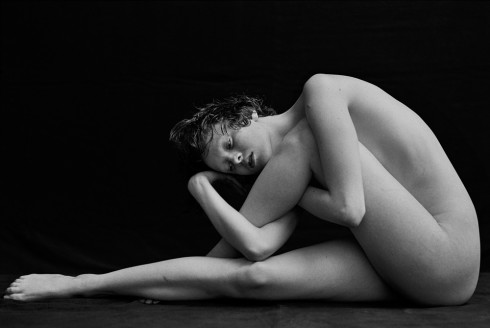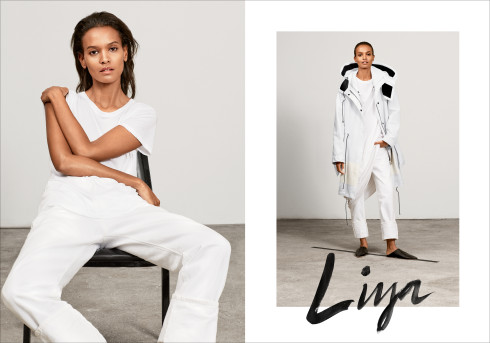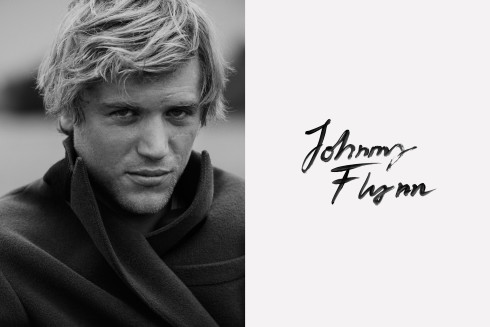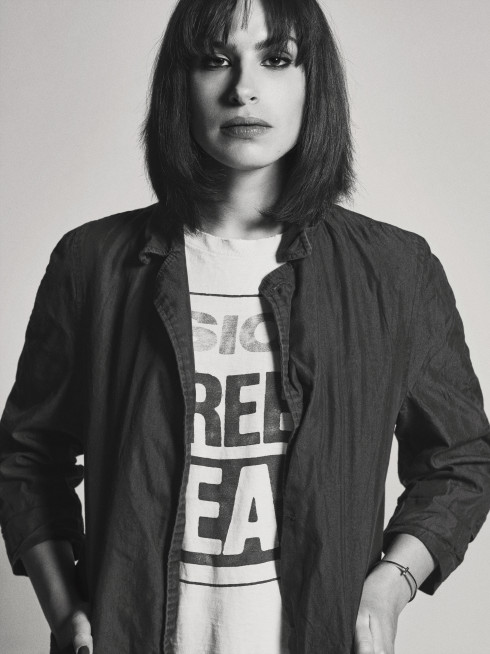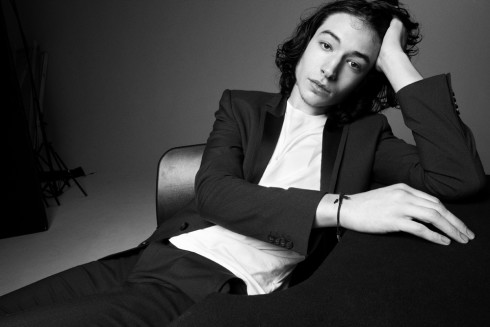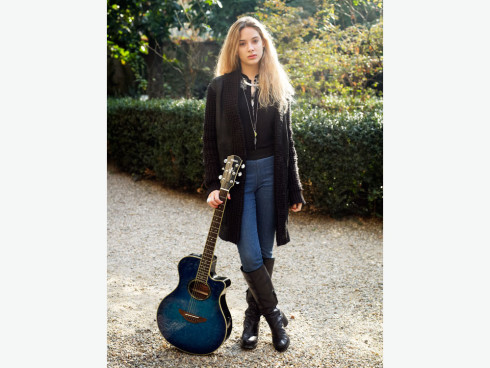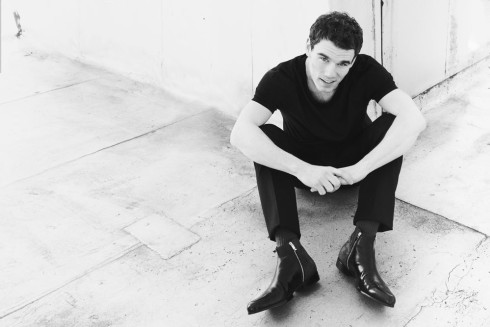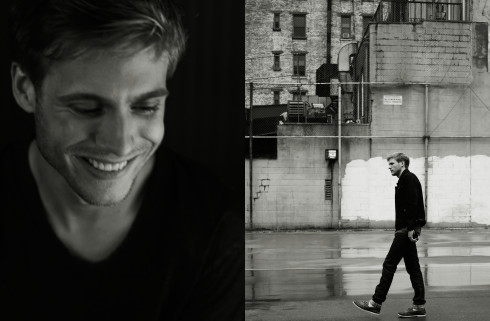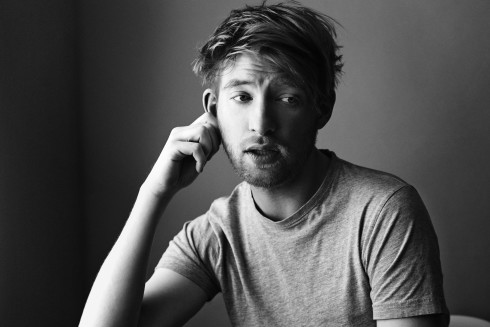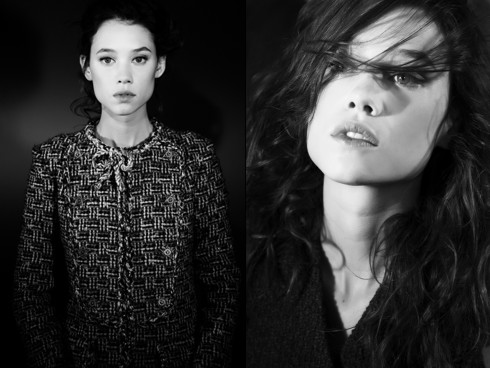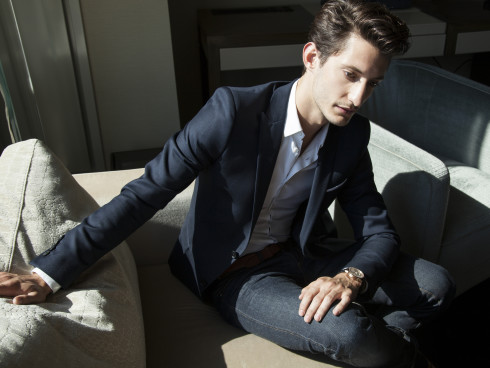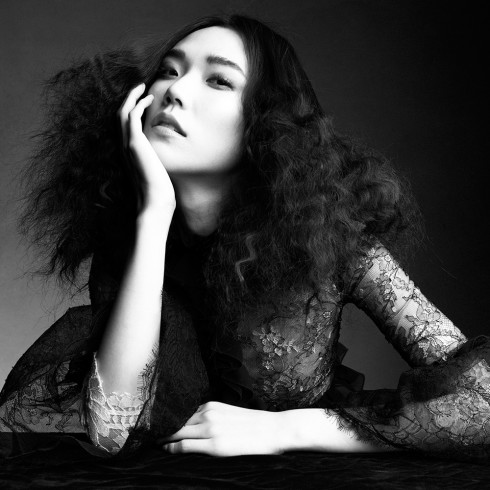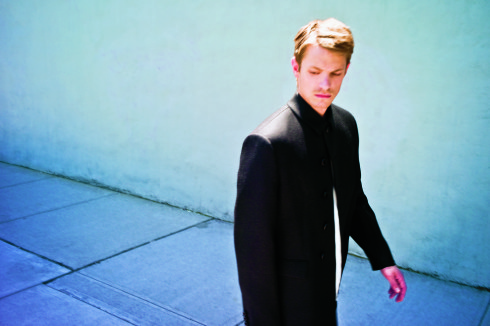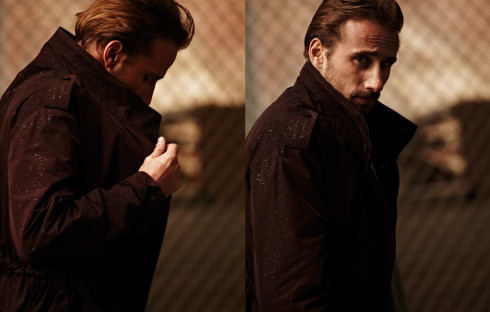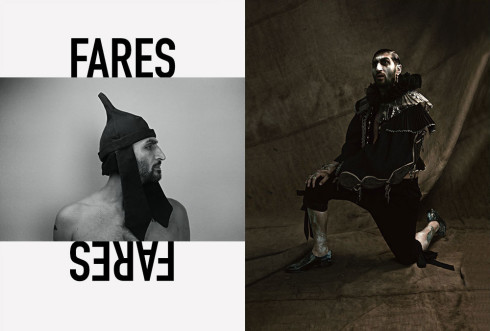
- By
- Jauretsi Saizarbitoria
- Photography by
- Jamie Isaia
FROM THE ARCHIVE: CAREY MULLIGAN, SPRING 2009
We’ve been around awhile now, and we know a lot of our readers might not have had the opportunity to experience our earlier issues. So we wanted to give you the chance to discover one of our favorite stories from our archive. Some of them feature actors, musicians, or artists who eventually made it big, talents we are proud to have tapped early in their careers. Some have brilliant writing, and some have beautiful photography. Some have both. But all of them are so great we thought they deserved a second chance. This week we present Jauretsi Saizarbitoria’s Spring 2009 profile of Academy Award nominee Carey Mulligan, then just a budding Michelle Williams lookalike fresh off wrapping An Education.
Smack in the middle of Times Square’s Broadway district, in the Edison diner, sits a British-looking version of Michelle Williams. “Oh, it’s because I’ve got this hair!” snickers Carey Mulligan, a London-born actress, clutching the blonde bob at the back of her neck. “When I have dark hair I get Katie Holmes.”
Mulligan is a highly respected 23-year-old thespian who’s mastered the “Brit lit” genre back in England. This includes Jane Austen’s Pride & Prejudice, with her now good friends Keira Knightley and Rosamund Pike. There’s also Charles Dickens’s Bleak House, and Northanger Abbey, another Austen classic. “I think that part of my rebellion in cutting my hair was not wanting to do those movies anymore,” she concedes.
It seems 2009 will be the year American audiences get to know Mulligan—first in Michael Mann’s Public Enemies, about American gangsters in the ’30s, starring Johnny Depp and Christian Bale. Then there’s Jim Sheridan’s Brothers, with Jake Gyllenhaal and Natalie Portman. And finally, there’s An Education, written by About A Boy scribe Nick Hornby, in which Mulligan plays opposite Peter Sarsgaard as a teenage girl in ’60s suburban London flinging with a guy twice her age. Perhaps next year, some other journalist will ask some other actress, “Do you realize you look like Carey Mulligan?”
Raised in a nurturing home in London, Mulligan’s family was the first to spiritually tease her by cracking open her mind, cultivating her artistry, and letting fantasy flow. “My parents were incredibly supportive of me acting as a child,” she recalls. Instead of Barbie dolls, they conceptualized castles with pinecones. Her brother would write silly plays while she acted in them. Then right when she got attached to it, the rug was pulled out from under her. “It was only when it turned into something I was planning on doing for a living that they were like, ‘Nooooo.’” The first monstrous wall was put up in front of her. “We didn’t know a single person in the industry. We had no family friends who were actors. It was very alien.” The contradiction was jarring. “The parents were like, ‘DO IT, DO IT,’ then one day they said, ‘STOP.’” Nobody realized that acting would later become her inner compass. “It wasn’t necessarily a career move,” she says. “It was more like, I need this to function.”
Mulligan has probably never heard of the Portuguese word saudade before. In fact, the word is so unique in complexity that it has no exact translation in any other language. It’s a paradoxical rush of sadness coupled with extreme joy. It’s not the feeling of missing something from the past, but rather the melancholy realization that one may never feel so complete again. “I guess because my parents weren’t interested in me being an actress, I’ve always had a sort of inner struggle going on.” When Carey was 6 years old, she wasn’t allowed to perform in her older brother’s rendition of The King and I. It was probably the first moment she felt as if she missed a part of herself—an unrequited love for something she never really had. She missed the absence of acting. Simple saudade. “I wasn’t allowed to be in [the play], and I was just crying and crying and crying and the director noticed me crying.” Finally, she landed a role, stole the crowd, and found her sanctuary. She intuited her fate even as a kid. “I used to have these dreams when I was 14 in which I would be working with like, Judi Dench,” she says. “Then I would wake up and realize it wasn’t real.” How could she have possibly known that five years later she’d stand on the set of her first real job, Pride & Prejudice, with the same woman extending her hand? “I believe we have the same agent,” said her dream subject on set. “I’m Judi, nice to meet you.” Then there’s the other alpha female, Susan Sarandon, with whom she just filmed The Greatest in New York. “Watching her is like watching Judi Dench,” Mulligan says.
The theater is her calling, so right now Mulligan is eyeballing New York City as her new home, checking out dream lofts, and seducing Tim Mison, her boyfriend of three years, to make the move with her. These days, she’s onstage every night performing The Seagull, the iconic Chekhov play. There’s a fire escape at the theater that has become a metaphysical passageway for her. The stairs are in between her dressing room (reality) and the stage (fantasy). Outside the fire escape window is a man who lives across the street. Their eyes meet every night with a smile as she runs down the stairs. On opening night, she described this vision looking out that fire escape window. “A little shadow came across the wall and I looked at myself and thought, Something is watching over me.” It was very profound. More importantly, that same brightly lit neon window reminds her of one major accomplishment—she has made it to Broadway. “After that first time, I got into this little ritual every night.”
Even more serendipitous is the fact that it’s the same theater her mom took her to when she was 14 years old to watch Jennifer Jason Leigh in Proof. It would take ten years for Mulligan to stand on that same stage. “I have this line at the end of act 2 where everyone walks off the set and I say, ‘I’m dreaming.’ I had always found that line really hard to say unless I was in exactly the right state.” Keep in mind this includes numerous nights performing the play in London alongside Kristin Scott Thomas. “But that night, it just came out of my mouth. And it has never waned—that feeling is real for me every night.”
“If you don’t burst into tears when you don’t get a job, then you didn’t want it enough in the first place,” Mulligan says. This thought of not acting at the highest frequency makes her tremble. I almost want to tell her that she’s a shoo-in for success. But I like her sweet longing too much. It’s almost like a subconscious state of incompleteness, something she never wants to fully resolve. My interview time is over, just as we’re talking about the last few weeks of The Seagull performances. “It’s become really hard to do,” she says, “because I know we have three weeks of it left. I enjoy doing it so much. The more we do it, the closer we are to the end of it.” Feeling her contagious sense of urgency, I stand up and pay the cashier for the healing soup on a freezing day. I release Mulligan back to the theater across the street, back to her little fire escape and to that ritual that keeps her together.
Casting by Greg Krelenstein. Makeup by Christian McCulloch at Tim Howard Management. Hair by Ashley Javier at Art + Commerce. Photographer’s assistant: Aurelie Graillot. Stylist’s assistant: Lindsey Hornyak. Special thanks to: Lindsay Thompson at Art + Commerce and Alana Varel and James Grant at Starworks.
